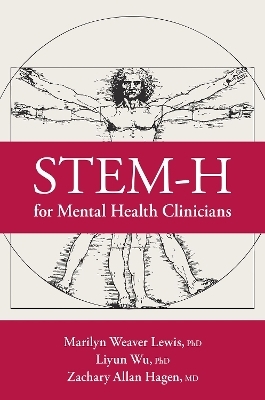
STEM-H for Mental Health Clinicians
Oxford University Press Inc (Verlag)
978-0-19-763851-4 (ISBN)
Readers who master the material will be prepared to work as medical team members or as independent clinicians with private or community clients who struggle with medical problems. This textbook addresses the well-being of the patient's family members and introduces solutions to improve the caregivers' burden. Chapters in STEM-H for Clinicians provide a bench-side to bedside approach to apply basic global scientific data, predominantly from the United States, that inform clinicians' treatment methods and develop research-informed practice.
Dr. Marilyn Weaver Lewis is Professor of Social Work at Norfolk State University, Norfolk, VA, She began her career as a researcher using animal models to study drug use and brain chemistry and behavior and later, neurodevelopment of drug-exposed babies. Dr. Lewis has been licensed as an independent, clinical psychotherapist with extensive experience working in outpatient substance use clinics, and in-patient psychiatric hospitals. Since 2004, she has instructed masters level social work students in the area of substance misuse and dependency, mental health, and has developed a masters level course in STEM-H for the Military. Dr. Liyun Wu is Associate Professor at Norfolk State University School of Social Work. Her research focuses on technical methods for evaluating associations from correlated data in behavioural health and uncovering social determinants of health. She has been the lead faculty in research methodology for both master's and doctoral social work programs. In collaboration with gerontology, public health, and social work colleagues, she served as program evaluator to evaluate the effectiveness of telehealth in terms of behavioural health assessment, care coordination, diagnosis, education, and intervention for school-aged children. Dr. Zachary Allan Hagen, MD is an Emergency Medicine Physician in Baltimore. Prior to working clinically, he studied engineering and worked in medical software development. He then transitioned to clinical medicine, graduating from Eastern Virginia Medical School and began training in Emergency Medicine at the University of Maryland in Baltimore.
Foreword by Elizabeth Delores Dungee-Anderson, PhD, LCSW
Introduction
Chapter 1 How Understanding Genetics Can Benefit Mental Health Clinicians
Chapter 2 How Understanding the Nervous System Can Benefit Mental Health Clinicians
Chapter 3 How Understanding the Endocrine System Can Benefit Mental Health Clinicians
Chapter 4 How Understanding the Lymphatic System Can Benefit Mental Health Clinicians
Chapter 5 How Understanding the Sensory System Can Benefit Mental Health Clinicians
Chapter 6 How Understanding the Circulatory System Can Benefit Mental Health Clinicians
Chapter 7 How Understanding the Respiratory System Can Benefit Mental Health Clinicians
Chapter 8 How Understanding the Integumentary System Can Benefit Mental Health Clinicians
Chapter 9 How Understanding the Musculoskeletal System Can Benefit Mental Health Clinicians
Chapter 10 How Understanding the Gastrointestinal System Can Benefit Mental Health Clinicians
Chapter 11 How Understanding the Urogenital System Can Benefit Mental Health Clinicians
Glossary
References
| Erscheinungsdatum | 09.01.2023 |
|---|---|
| Zusatzinfo | 62 Figures |
| Verlagsort | New York |
| Sprache | englisch |
| Maße | 164 x 237 mm |
| Gewicht | 526 g |
| Themenwelt | Medizin / Pharmazie ► Gesundheitswesen |
| Sozialwissenschaften ► Pädagogik ► Sozialpädagogik | |
| Sozialwissenschaften ► Soziologie | |
| ISBN-10 | 0-19-763851-1 / 0197638511 |
| ISBN-13 | 978-0-19-763851-4 / 9780197638514 |
| Zustand | Neuware |
| Haben Sie eine Frage zum Produkt? |
aus dem Bereich


